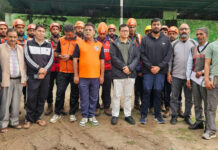The announcement of a caste-based census has reignited a crucial debate in Indian society. While some are unsurprised by the call to expand reservations beyond the 50% ceiling in light of new data, the possibility of excluding certain forward castes from the backward category has also emerged. This, however, is not an unexpected development; the demand to increase the reservation ceiling has existed for years. The key argument for extending reservations beyond 50% hinges on the belief that the most socio-economically and educationally backward among the Other Backward Classes (OBCs) have not fully benefited from the existing policies. While some sections within the OBCs have made significant progress, others remain marginalized. The current reservation policy does not adequately address the internal disparities within these communities. It is critical that the data from the caste census is used to refine and reformulate the reservation policy. In doing so, preference must be given to those castes and communities that have remained economically and socially backward, even within reserved categories. This would not only ensure social justice but also help rationalize the system for better outcomes. Moreover, the demand for sub-categorization within the OBCs is not new and has been gaining momentum across states. A transparent caste census can provide the empirical foundation necessary to implement such sub-categorization, ensuring that benefits reach the truly disadvantaged. However, any policy shift must be guided by robust data. The last caste-based census was conducted in 1931, and decisions based on that data are no longer viable. To frame effective policies, accurate, contemporary data is essential. A caste census is the first step toward filling this crucial data gap. While the census promises to provide a clearer picture of caste-based inequities, its success hinges on how the data is used. If it becomes another political tool to consolidate vote banks, the goal of social justice will remain unfulfilled. Instead, the findings should be used to target benefits where they are most needed and to revise the reservation list accordingly. India must move beyond the politics of caste and focus on policies rooted in justice and equity. The caste census should be the foundation for such transformation, not a means to further entrench caste-based politics.

Dogra Herald is the media of J & K, breaking language and geographical barriers, connecting J & K to the rest of India.
0191 245 4946
info@dograherald.com
Latest articles
Govt directs felling all female Russian poplars
iamjkstarr - 0
Divisional Commissioner Kashmir, Pandurang K Pole, Friday chaired a meeting to discuss the pollen related infections in wake of the spread of COVID19 and...
Dulhasti Power Station conducts second quarterly meeting of Official Language Implementation Committee
iamjkstarr - 0
Dulhasti Power Station conducts second quarterly meeting of 2020-21 of the Official Language Implementation Committee under the Chairmanship of Nirmal Singh, General Manager (In-charge),...
CM Omar fulfils another promise: Govt raises MarriageAssistance to Rs 75000 for AAY Category Girls
DH NEWS SERVICESRINAGAR, Apr 3The Jammu and Kashmir Government has enhanced the Financial Assistance under the State Marriage Assistance Scheme (SMAS) for...



























